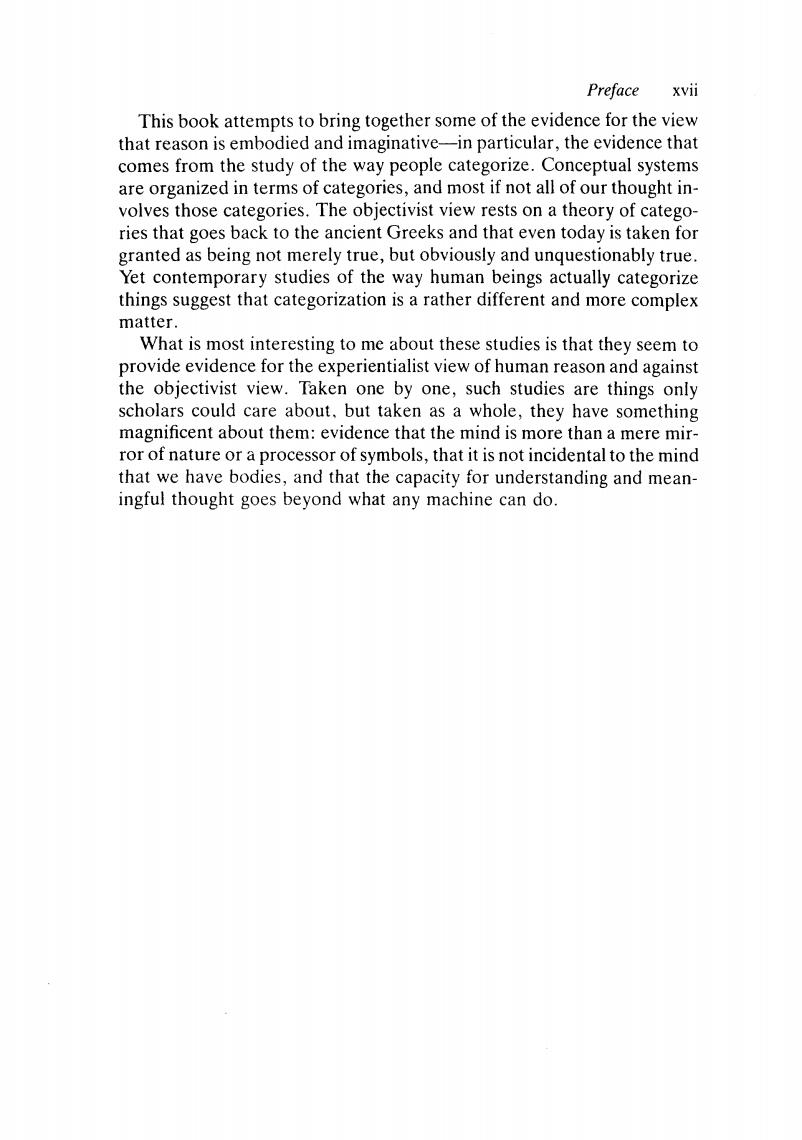正在加载图片...

Preface xvii This book attempts to bring together some of the evidence for the view that reason is embodied and imaginative-in particular,the evidence that comes from the study of the way people categorize.Conceptual systems are organized in terms of categories,and most if not all of our thought in- volves those categories.The objectivist view rests on a theory of catego- ries that goes back to the ancient Greeks and that even today is taken for granted as being not merely true,but obviously and unquestionably true. Yet contemporary studies of the way human beings actually categorize things suggest that categorization is a rather different and more complex matter. What is most interesting to me about these studies is that they seem to provide evidence for the experientialist view of human reason and against the objectivist view.Taken one by one,such studies are things only scholars could care about,but taken as a whole,they have something magnificent about them:evidence that the mind is more than a mere mir- ror of nature or a processor of symbols,that it is not incidental to the mind that we have bodies,and that the capacity for understanding and mean- ingful thought goes beyond what any machine can do.Preface XVll This book attempts to bring together some of the evidence for the view that reason is embodied and imaginative-in particular, the evidence that comes from the study of the way people categorize. Conceptual systems are organized in terms of categories, and most if not all of our thought involves those categories. The objectivist view rests on a theory of categories that goes back to the ancient Greeks and that even today is taken for granted as being not merely true, but obviously and unquestionably true. Yet contemporary studies of the way human beings actually categorize things suggest that categorization is a rather different and more complex matter. What is most interesting to me about these studies is that they seem to provide evidence for the experientialist view of human reason and against the objectivist view. Taken one by one, such studies are things only scholars could care about, but taken as a whole, they have something magnificent about them: evidence that the mind is more than a mere mirror of nature or a processor ofsymbols, that it is not incidental to the mind that we have bodies, and that the capacity for understanding and meaningful thought goes beyond what any machine can do